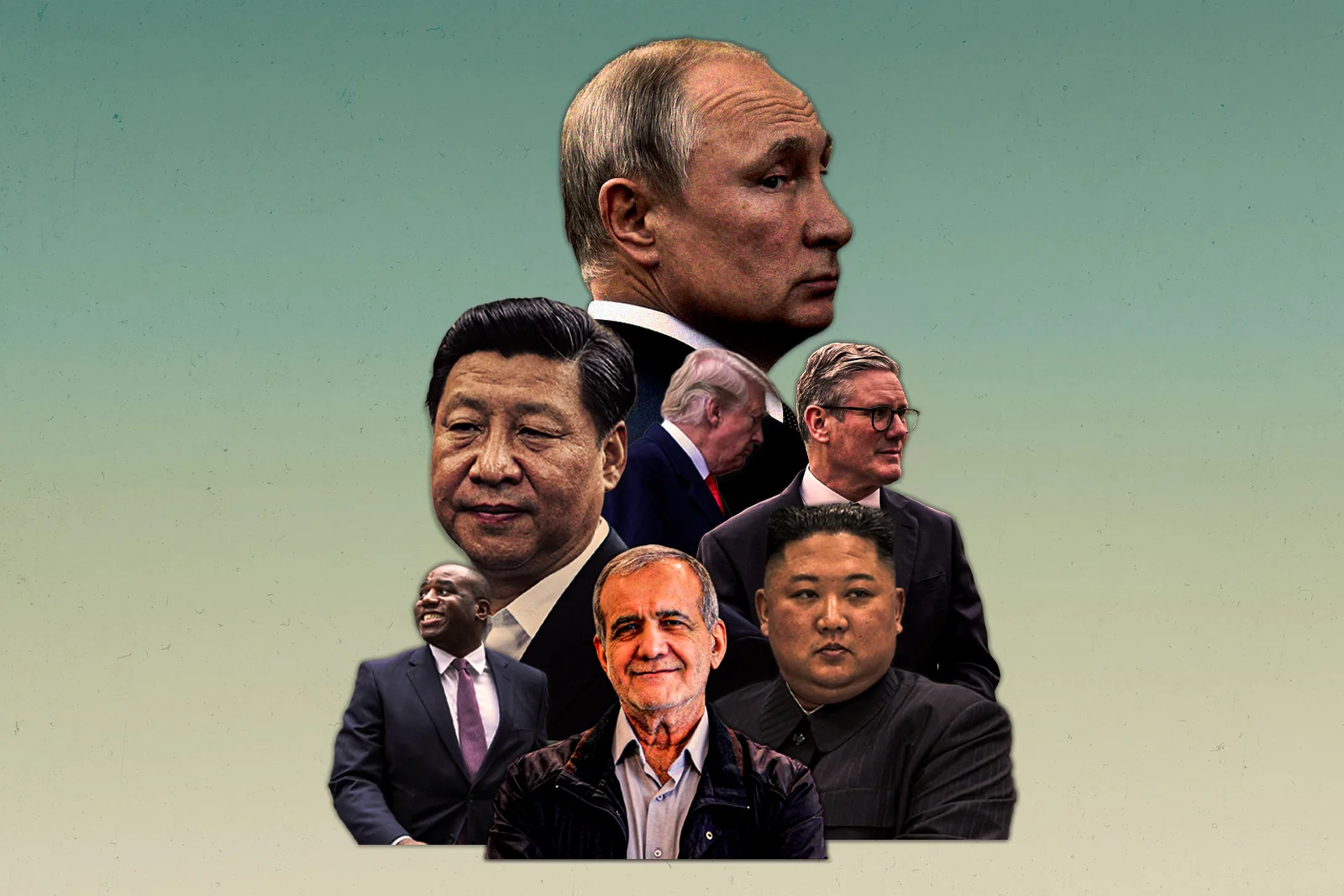
CRINKs: The New Game in Town
Rishi Sunak has labeled them the Axis of Autocratic States; General Sir Roland Walker, head of the British Army, prefers the term Axis of Upheaval, warning that we face the threat of war within the next three years. Both references evoke George Bush’s Axis of Evil. However, I prefer to call them the CRINKs. Regardless of the label we use for the grouping of China, Russia, Iran, and North Korea, their increasing collaboration is having a seismic impact on the global international order.
The conflicts in Ukraine and Palestine have deepened the economic, military, political, and technological ties between the CRINKs. These four powers increasingly identify common interests, align their rhetoric, and coordinate their military and diplomatic activities. Russian President Vladimir Putin’s first overseas visit after a lengthy hiatus was to North Korea, continuing their mutual arms support. Iran supplies military hardware and drones to all, and Russia is rumored to be supplying S-300 missiles to Hezbollah, which, if true, would significantly impact the balance of power along the Israel-Lebanon border.
This group is not an exclusive bloc and certainly not an alliance. Instead, it is a collection of dissatisfied states converging on a shared purpose of altering the principles, rules, and institutions that underlie the prevailing international system. The mantra “the enemy of my enemy is my friend” binds the CRINKs. They are not necessarily natural allies but are united by their shared hatred of the West.
When they cooperate, their actions have a far greater effect than the sum of their individual efforts. Together, they enhance each other’s military capabilities, dilute the efficacy of U.S. foreign policy tools, including sanctions, claim spheres of influence, and hinder Washington and its partners’ ability to enforce global rules.
Their collective aim is to create an alternative to the current order. They all reject the principle of universal values and view the West’s championing of democracy as an attempt to undermine their legitimacy and foment domestic instability. They insist that individual states have the right to define democracy for themselves, oppose external meddling in their internal affairs, and resist the expansion of U.S. alliances. The West must acknowledge its role in creating this situation through a series of diplomatic missteps and hypocritical approaches to nation-building, particularly in the Middle East.
How should the West, particularly the UK, respond?
It is no longer possible for Western powers to drive a wedge between these nations with incentives and sanctions. They are no longer seen as honest foreign policy brokers. Any deal would be viewed as short-term, overshadowed by the potential for reneging. The threat of military action against this group no longer carries the same weight. NATO is not as feared by the CRINKs as it once was.
From a UK perspective, the only option to counter this destabilizing group is through diplomacy. I have long advocated for a return to British statecraft, relying on our soft power rather than U.S. military might. Saber-rattling no longer works; investment, job creation, and international aid are better ways to rebuild trust. This is particularly true in the Middle East, where the CRINKs’ influence is strongest.
It is impossible for Foreign Secretary David Lammy to micromanage the Middle East, which is why I was pleased to see Prime Minister Keir Starmer appoint Hamish Falconer as the new Middle East Minister. I hope Falconer is more suited to the role than his predecessor, Lord Tariq Ahmad, who was ineffective and struggled with the position. Ideally, this appointment would be paired with a Middle East envoy to continue strengthening ties with the region. It is our responsibility not to abandon the region to CRINKs’ influence but to continue playing a crucial role in bringing peace and prosperity.
Trump 2.0 influence
With a second Donald Trump presidency a strong possibility—what effect would that have on the CRINKs? Known more for his unpredictability than strategic thinking, Trump has ambitions to build a legacy as a statesman, resolving conflicts rather than just managing them. As a businessman, Trump’s primary concern is making money and ensuring those around him can do so too. This translates to a war-averse foreign policy. Peace allows business to flourish and trade to flow unrestricted, which will play into the hands of Russia and China as Trump softens support for Ukraine and insists Taiwan pays for its protection.
We will see a different world where Europe will have to consider its own defense and strategic outlook, becoming less reliant on Washington. Crucial to this will be strong cooperation between the EU and the UK in defense and military objectives. The UK should act as a broker between the EU and the U.S. to ensure Trump doesn’t completely neglect Ukraine.
How will it play out?
We are at an inflection point; the tectonic plates are shifting, and we are likely to see chaos and disorder before a new order emerges. With waning U.S. influence, this new order is likely to be multipolar. Iran cannot be bullied into submission; it has withstood the impact of sanctions.
Where will the main threats come from? China has not fought a war in 100 years, and I don’t believe it is ready, willing, or able to invade Taiwan; it is more likely to blockade and strangle it economically. Russia poses a bigger military threat than China; it has built a massive military-industrial complex since 2022, putting its entire economy on a war footing, and is much stronger as a result.
China will not replace the U.S. as the preeminent world power—the question is whether they can work alongside each other economically. The focus for the West should be to prevent China from becoming the dominant economic power in Africa, the Middle East, and Latin America.
Foreign policy is increasingly transactional. Economic dominance is the only game in town. Britain has been too reactive and not strategic enough in its thinking. The CRINKs are here to stay, and it will be challenging to drive a wedge between them. If they cannot be faced down militarily, economic engagement is the only practical alternative.
